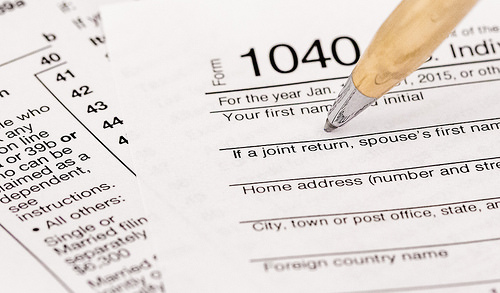It’s part-way through the year, have you been keeping track of your business expenses? Real estate agents, brokers, and investors are urged to keep a running expense sheet. Because, unless your company is withholding payroll taxes from your checks, you’re responsible for paying the IRS out-of-pocket come e-file tax time.
The IRS considers agents, brokers, and investors to be self-employed. That’s common knowledge for seasoned workers, but what may not be obvious is the huge volume of deductible business expenses available to you. Almost all business expenses are deductible (write-offs); meaning, you can minus them from your gross business income and what’s left is what’s taxed.
Keep in mind: there are thousands of tax credits and incentives available too. Individuals are urged to look into what credits may be available to them; or, ask the real estate agency you’re affiliated with to contact a third-party server to locate credits on their behalf. Larger businesses may have trouble determining exactly what credits are available, as well as it may be difficult to remain compliant in order to secure the credit. ADP keeps a database of approximately 3,000 incentives and helps businesses maximize the tax credits available to them while also maintaining tight adherence to government guidelines.
Without further ado, here’s a list of some important tax deductions real estate agents, brokers, and investors can take advantage of.

Office Equipment - Did you purchase a computer? What about a stapler? What about stamps? Save your receipts because nearly everything is a write-off. Although you won’t get the full amount returned to you, you’ll be able to write-off a percentage of the cost. This amounts to a sizeable discount on pretty much everything you buy.
Car and Truck Expenses - Those in the real estate business commute a great deal. Whether you’re an agent driving all over the city to show homes or an investor looking at property across state, you commute. Although you can accept the IRS’s current standard mileage rate, a better idea is to get very good at recordkeeping. Keep track of your own mileage, what you’re spending on fuel, car washes, repairs, etc.
Business Travel Expenses - If you’ve taken any business trips, your airfare, hotel, stay, food and more are considered deductions. Your meals may only be deducted 50 percent, so keep that in mind when eating out.
Insurance and Other Professional Services – If you subscribe to business insurance, it’s deductible. If you’re self-employed and pay for personal health insurance, that’s also deductible. Attorneys, accountants, and other professionals are also deductible.
Business Meals and Entertainment – You’re urged not to take too many meetings in fun environments. First, meals and entertainment are only 50 percent deductible. Second, you must be able to prove “serious business discussion took place before, during, and after the event,” says NOLO.com.
Office Rent and Utilities
Even if you operate your business out of your home, you’re entitled to deduct some portion of your rent and utilities. You can deduct more if your office is a location separate from your home.
Avoid Paying Capital Gains - Finally, and this one is just for investors, and it’s really not a deductible. It’s more a tax-time benefit all investors should be aware of. The IRS tax code 1031 says if you sell one investment to purchase another for more money, then you can skip paying capital gains and depreciation recapture taxes.
Tax time shouldn’t be a huge burden on real estate workers, and with proper planning, it won’t be. Save all your receipts and do your best to reduce your gross profits by writing off as many of your purchases as possible. Remember: you could be audited, so save those receipts for however long is necessary.
Photo Credit: besnette via Compfight cc